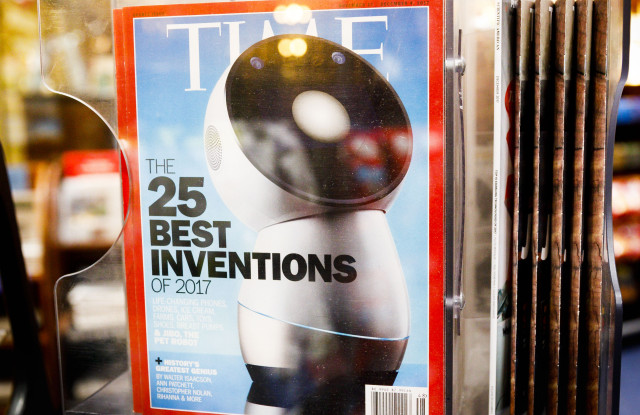Time-Meredith Deal, Amazon’s Digital Ad Revenue Growth, Emerging Content Validation Industry, Google AMP Governance Model, TFP’s Infographic of the Week
Welcome to Technology for Publishing’s roundup of news, stories of interest, and tips for media industry pros! It’s turning out to be a very busy week as we include posts on Time’s printing and distribution deal with Meredith, Amazon’s spike in digital ad revenue, why content validation tech could be the next big growth industry, Google AMP’s new governance model, and more.
 Under a new multiyear deal with Meredith, Time magazine—which was recently sold to Salesforce founder Marc Benioff for $190 million—will continue in print as well as expand its digital operations and events business. “I can’t imagine a better outcome for Time,” says EIC Edward Felsenthal in a WWD post, noting the magazine is now “solidly profitable” and plans to hire additional staff. As part of the agreement, Meredith will continue to print and distribute the title, the report says, as well as provide the “media infrastructure” Benioff needs to ensure continuity. For more on Time magazine’s future, check out this Q&A with Felsenthal on Columbia Journalism Review’s site.
Under a new multiyear deal with Meredith, Time magazine—which was recently sold to Salesforce founder Marc Benioff for $190 million—will continue in print as well as expand its digital operations and events business. “I can’t imagine a better outcome for Time,” says EIC Edward Felsenthal in a WWD post, noting the magazine is now “solidly profitable” and plans to hire additional staff. As part of the agreement, Meredith will continue to print and distribute the title, the report says, as well as provide the “media infrastructure” Benioff needs to ensure continuity. For more on Time magazine’s future, check out this Q&A with Felsenthal on Columbia Journalism Review’s site.- The duopoly has some competition: Amazon. eMarketer reports that Amazon’s digital ad revenues will more than double this year, surpassing both Oath and Microsoft. Though the spike is due in part to a recent accounting change, the company is expected to rake in $4.61 billion in U.S. advertising revenue in 2018, making it the No. 3 digital ad platform behind Facebook and Google, the research company says. eMarketer projects that growth will continue at 50% per year through 2020, at which time Amazon will account for 7% of the total U.S. digital ad spending.
- Is content validation the next big thing? According to a Fast Company post, it could very well be, as disinformation, deepfakes (altered videos), and other forms of information manipulation continue to upend and threaten the foundations of political and social life. “Content validation is a void waiting to be filled, and it may just represent one of the next great digital waves,” it says. The emerging market includes sophisticated algorithms and other tools that detect anomalies in video, some of which are now being used by Reuters, Gyfcat, and DARPA, among other organizations. However, combatting fake content that’s text-based is proving more difficult because it requires human intervention, the article notes.
- Since its inception in 2016, Google’s Accelerated Mobile Pages instant article program has been held out as an open source project anyone can use and contribute to. But, as a Verge article points out, it was seen by some as an “attempt to co-opt the entire web with a Google-controlled format.” To change that perception, Google is now moving AMP into a “new governance model” whereby a committee that includes non-Google contributors will make code decisions—putting control of the project into the hands of many vs. a single company. That’s a big deal, the report says, because AMP now accounts for a big chunk of the mobile web and, for some publishers, it’s key to page view growth.
On the Technology for Publishing Blog
- How’s your email strategy working for you? This week’s Infographic Pick offers some real-world-tested optimization hacks that can shift your email campaigns into high gear.
- ICYMI: Check out our latest Women in Media roundup, highlighting Nylon EIC Gabrielle Korn on digital transformation, top NatGeo execs discussing modern media, how Medium VP Siobhan O’Connor is approaching a subscription-based model, the role of Times newsletter strategy director Elisabeth Goodridge, and more.
- And don’t miss Monica Murphy’s InDesign Tip on how to use Photoshop or Illustrator keyboard shortcuts in InDesign—it’s a real time-saver!
WWD photo: Justin Lane/EPA-EFE/REX/Shutterstock (9244059a)
Visit our blog for highlights of interesting and noteworthy stories from the publishing world every Friday, and sign up for TFP’s This Week in Publishing newsletter. Think we missed something great? Let us know! Leave a comment below or drop us a note.
Posted by: Monica Sambataro


